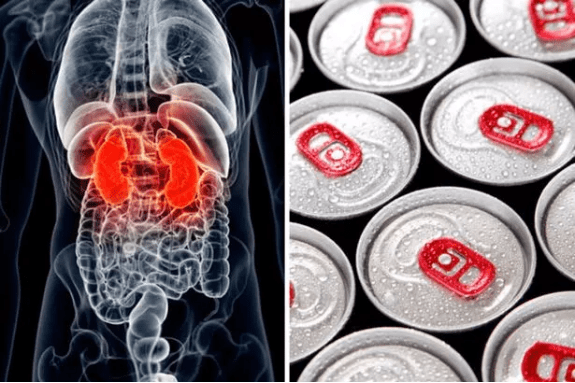
Can Energy Drinks Really Damage Your Kidneys?
Fiona Nanna, ForeMedia News
6 minutes read. Updated 12:15PM GMT Tues, 30July, 2024
In recent years, energy drinks have surged in popularity as quick solutions for fatigue, touted to enhance alertness and boost performance. From students pulling all-nighters to professionals seeking an edge at work and athletes pushing their limits, these beverages have become a staple in many lives. However, growing concerns have emerged about the potential risks these drinks pose to kidney health.
The Composition of Energy Drinks and Its Impact
Energy drinks are often packed with ingredients such as caffeine, taurine, guarana, and high levels of sugar. While these components can offer temporary boosts in energy and alertness, they may also have significant side effects on kidney function.
Caffeine is a primary ingredient in energy drinks and is known for its diuretic effects, meaning it increases urine production. This can lead to dehydration, particularly in hot environments or during intense physical activity. Dehydration places extra stress on the kidneys, which are essential for filtering waste and maintaining fluid balance in the body.
Taurine and guarana are other common ingredients, each with its own set of effects. Taurine, an amino acid, and guarana, a natural stimulant, can exacerbate the issues caused by caffeine, potentially affecting kidney function adversely.
The Risks Associated with Energy Drinks
- Increased Risk of Kidney Stones: One of the major concerns is the formation of kidney stones. Studies have shown that high caffeine intake can elevate calcium levels in the urine, which may lead to the development of calcium oxalate stones, the most common type of kidney stones. Individuals consuming large quantities of caffeine are at a higher risk for this condition.
- Dehydration and Overexertion: The diuretic effect of energy drinks, combined with physical exertion, can lead to severe dehydration. This places a significant strain on the kidneys, impairing their ability to function properly. Prolonged dehydration can even result in acute kidney injury if the body’s fluid requirements are not adequately met.
- Hypertension and Kidney Damage: The elevated caffeine content in these beverages can cause increased blood pressure, a known risk factor for kidney damage. Chronic hypertension can lead to kidney strain and long-term damage. Ingredients like guarana and taurine may worsen these effects, potentially causing arrhythmias or other cardiovascular issues.
Guidelines for Consumption
While occasional consumption of energy drinks may not pose a significant risk for most healthy individuals, those with pre-existing kidney conditions, hypertension, or metabolic disorders like diabetes should exercise caution. For individuals in these groups, it is advisable to avoid energy drinks altogether. Even for those who are otherwise healthy, moderation is key to minimizing potential health risks.

